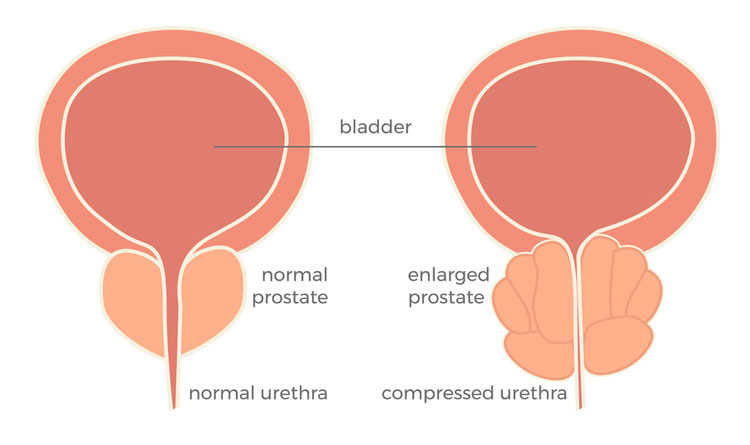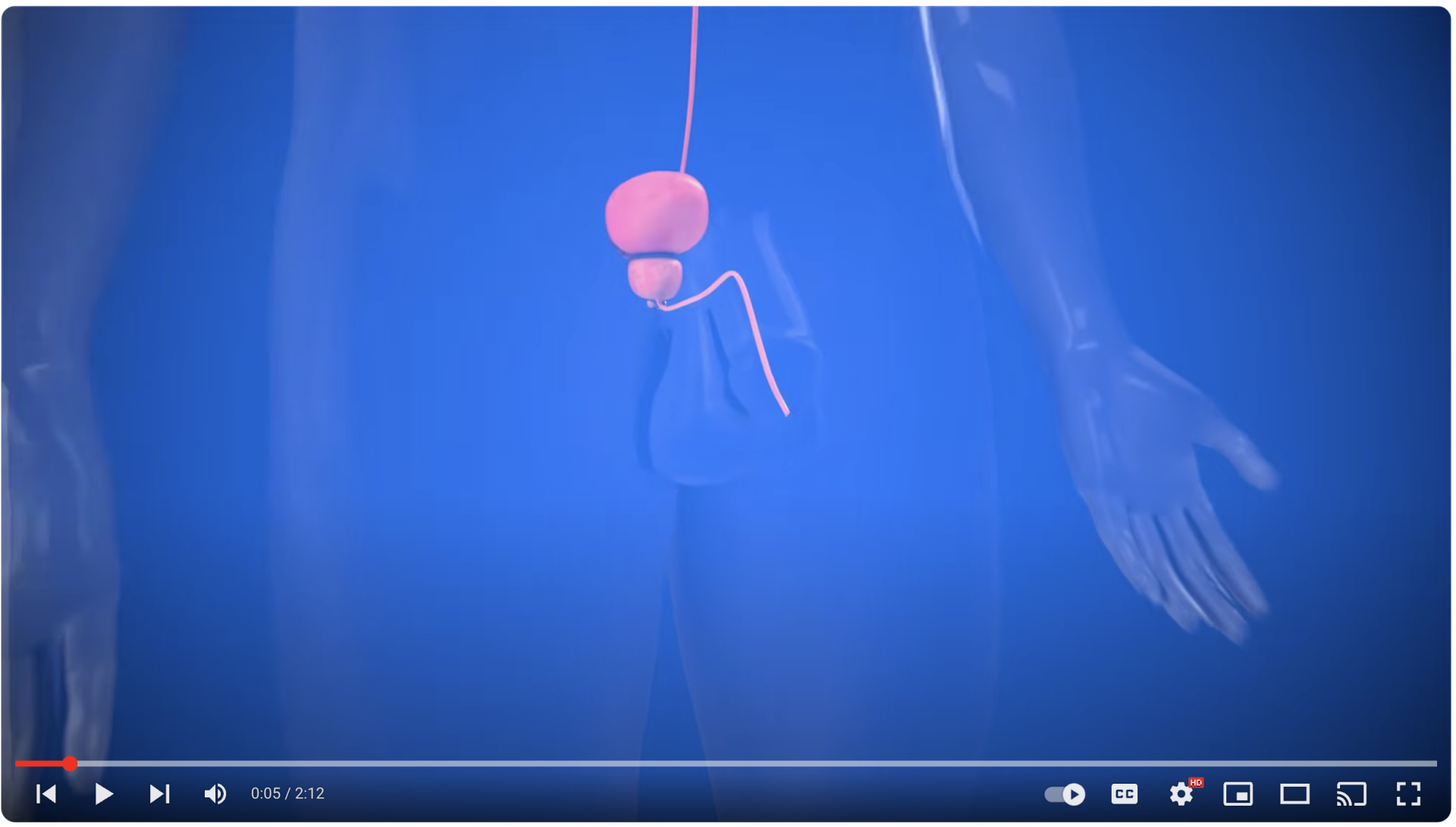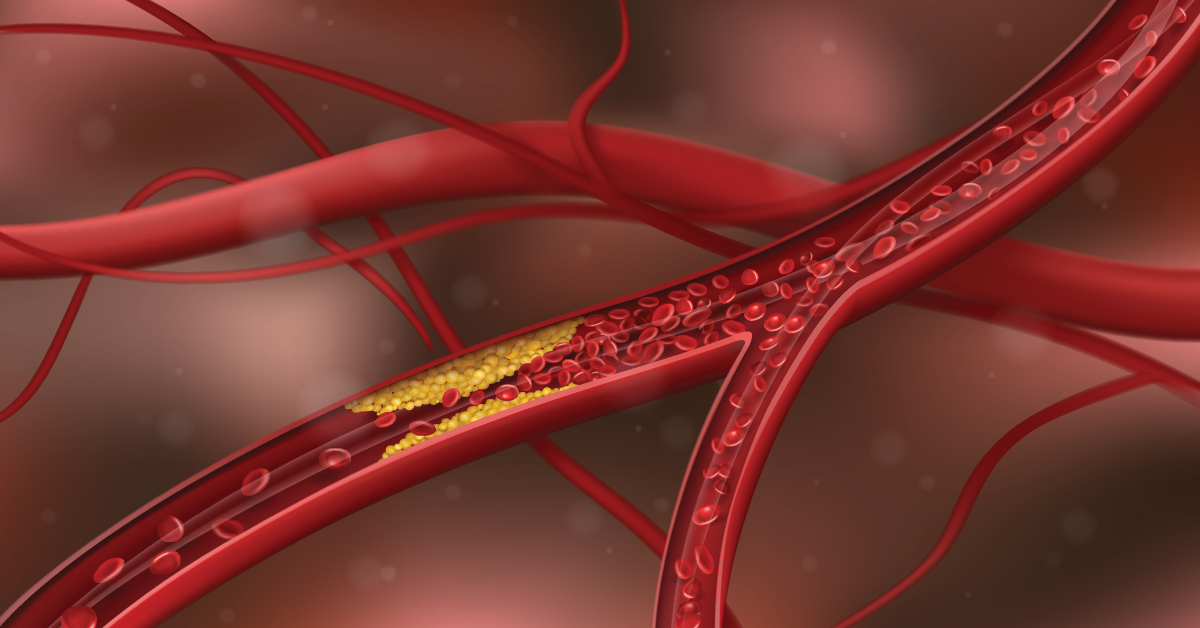‘No Shave November’ and ‘Movember‘ have sparked a movement among men to ditch their razors, embrace their facial hair, and raise awareness for men’s health issues. As this month draws to a close, we are joining the cause, initiating a conversation about prostate health, more specifically, benign prostatic hyperplasia (BPH).
What is BPH?
Benign prostatic hyperplasia (BPH) is a common condition in which the prostate gland becomes enlarged. The prostate is a walnut-sized gland that surrounds the urethra, the tube that carries urine from the bladder to the outside of the body. As the prostate enlarges, it can press against the urethra and make it difficult to urinate. While BPH is not cancerous, it can significantly impact a man’s quality of life.

Risk factors for BPH
BPH affects almost half of men aged 50 and above and up to 90% of men over the age of 80. It is not known exactly what causes BPH, but it is thought to be related to changes in hormone levels as men age.
According to the Urology Care Foundation (UCF), risk factors for BPH include:
- Men over the age of 50, as the risk for BPH rises with age
- Men whose fathers had BPH
- Men who are overweight or obese
- Men who don’t stay active
- Some men with erectile dysfunction (ED)
UCF notes there is no sure way to prevent BPH, but losing weight and eating a well-balanced diet of fruits and vegetables may help. Too much body fat may increase hormone levels and other factors in the blood and stimulate the growth of prostate cells. Staying active also helps control weight and hormone levels.
Symptoms of BPH
The symptoms of BPH can vary, but the most common include the following:
- Difficulty starting or stopping urination
- Feeling a sudden urge to urinate
- Waking several times a night to urinate
- Weak urine stream or dribbling after urination
- Lack of control over urination
- A sense of incomplete bladder emptying
Other symptoms may include discomfort or pain during urination or ejaculation. Although these symptoms can be bothersome, they are not necessarily indicative of prostate cancer. However, it is still essential to consult with your primary care provider or a urologist if you experience any of these symptoms, as other underlying conditions may be the cause.
“While BPH is a common condition, it’s important to pay attention to possible symptoms. While it may be uncomfortable to address, avoiding it can lead to complications like urinary tract infections, bladder stones, and even kidney damage. Let’s tackle this problem early.”
~ Brad Qualey, MD, Welia Health urologist
If left untreated, BPH can lead to severe complications such as urinary tract infections, bladder or kidney damage, and even prostate cancer. Fortunately, there are a variety of treatment options available to manage the symptoms of BPH so you can continue to lead an active and fulfilling life.
A valuable resource used to evaluate BPH is an evidence-based questionnaire that assists urologists in assessing symptoms and their impact on a patient’s quality of life. Two questionnaires, known as BPH score calculators, include the International Prostate Symptom Score (IPSS) and the American Urological Association Symptom Index (AUA-SI).
Managing BPH
If you are experiencing symptoms of BPH, there are various approaches to managing the condition. The initial step involves consulting a urologist and undergoing a comprehensive examination. The next steps may include any of the following:
- Watchful waiting
This approach may seem passive, but it involves monitoring symptoms and getting regular checkups from your provider. It can be a good option for men with mild symptoms of BPH or who are not bothered by them. If symptoms worsen, your provider may recommend another option.
- Medications
Two main types of medications, alpha-blockers and 5-alpha reductase inhibitors can be used to treat BPH.- Alpha-blockers: Alpha-blockers work by relaxing the muscles in the prostate and bladder. This can help to improve urine flow and reduce symptoms such as difficulty urinating and frequent urination. Alpha-blockers start working quickly, but they do not shrink the prostate gland.
- 5-alpha reductase inhibitors: 5-alpha reductase inhibitors block the conversion of testosterone to dihydrotestosterone (DHT), a hormone that causes the prostate gland to grow. 5-alpha reductase inhibitors take several months to start working, but they can shrink the prostate gland and improve symptoms over time.
- Surgery
Surgery is usually only recommended for men with severe BPH symptoms who have not responded positively to other treatments. Several different types of surgery are available, and your urologist will help you choose the best option based on your situation.- Transurethral resection of the prostate (TURP). TURP is a minimally invasive procedure in which a thin tube is inserted into the urethra and used to remove excess prostate tissue.
- Laser surgery: Laser surgery is similar to TURP, but it uses a laser to remove excess prostate tissue.
- Open prostatectomy: Open prostatectomy is a more invasive surgery that involves removing the entire prostate gland.
Welia Health’s urologists frequently recommend a minimally invasive procedure called prostatic urethral lift, or Urolift, to address symptoms and enhance quality of life.
Urolift: A non-surgical treatment option for BPH
Urolift offers a non-surgical treatment option for individuals with urinary symptoms caused by BPH. This procedure involves inserting small implants that gently hold back the enlarged tissue of the prostate gland, resulting in improved urine flow.

Urolift is a minimally invasive alternative that does not require general anesthesia and can be conveniently performed in the office. The recovery period following the procedure is relatively short, with most individuals resuming normal activities within a few days. It is worth noting that Urolift has demonstrated long-term success, providing relief for many patients for several years.
Dealing with BPH can be both frustrating and uncomfortable; however, rest assured that multiple treatment options are available to address your symptoms, depending on their severity.
Welia Health can help.
If you suspect that you or a loved one may be experiencing symptoms of BPH, we encourage you to contact Welia Health at 320.679.1313. Request an appointment with our urology specialist, Dr. Brad Qualey, who can explore your options – monitoring symptoms, medications or surgery. Your well-being is our priority. We are here to provide the care and support you need.















